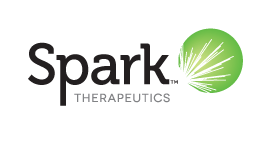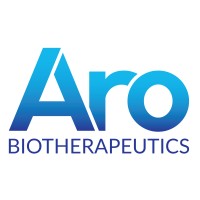Philadelphia, the birthplace of cell and gene therapy, is home to a number of companies focused on developing multiple treatment options for rare diseases, those that affect less than 200,000 people in the United States.
In honor of Rare Disease month, and the upcoming Rare Disease Day on the last day of February, BioBuzz takes a look at some of the companies focusing their resources on these indications.

Spark Therapeutics
A subsidiary of Swiss pharma giant Roche, Philadelphia-based Spark Therapeutics is developing gene therapies for debilitating diseases, including blindness, hemophilia, lysosomal storage disorders, and neurodegenerative diseases.
The company was spun out of The Children’s Hospital of Philadelphia in October 2013. Spark has one approved product, Luxturna, which is a gene therapy for a rare form of blindness. The company currently has four programs in clinical trials, including SPK-8016, a gene therapy for adult males with clinically severe hemophilia A. Recent data from a study with SPK-8011 showed a one-time treatment yielded a 97% response rate in reduced bleeding events in patients.

Castle Creek Biosciences
Formed in 2019, privately-held Castle Creek Biosciences is advancing a gene therapy platform aimed at a range of rare genetic diseases and skin disorders. The Chester County-based company is harnessing its proprietary fibroblast technology platform to develop its lead gene therapy candidate as a treatment for dystrophic epidermolysis bullosa, a debilitating genetic blistering disease. Castle Creek is also developing an investigational gene therapy for the treatment of moderate to severe localized scleroderma.

Adaptimmune
Primarily known as an oncology company, Philadelphia’s Adaptimmune does use its SPEAR T-cell technology to go after rare cancers. In 2019, the company was awarded Orphan Drug Designation for its SPEAR T-cell program targeting MAGE-A4 for the treatment of soft tissue sarcomas. There are approximately 50 types of soft tissue sarcomas. Adaptimmune is currently investigating its ADP-A2M4 SPEAR T-cells in two types of sarcoma: synovial sarcoma and Myxoid/round cell liposarcoma (MRCLS). Synovial sarcoma accounts for approximately 6% to 10% of all soft tissue sarcomas. MRCLS has a poor prognosis because it recurs locally and tends to metastasize quickly and widely.

Passage Bio
Another gene therapy company, Philadelphia-based Passage Bio is focused on developing treatments for rare, monogenic CNS diseases. Already this year, Passage announced plans for clinical programs for treatments of patients with Frontotemporal Dementia with granulin mutations and early infantile Krabbe disease, a rare lysosomal storage disease for which there are no approved disease-modifying therapies available. The company has established a strategic collaboration and licensing agreement with the renowned University of Pennsylvania’s Gene Therapy Program to conduct our discovery and IND-enabling preclinical work.

Chimeron Bio
Also based in Philadelphia, Chimeron Bio is developing is using its proprietary ChaESAR platform to develop novel RNA drugs for rare genetic disorders, infectious diseases, and cancers.
The company is using its ChaESAR RNA therapy for gene and metabolic disorders of the liver. Chimeron is also harnessing ChaESAR RNA in dendritic cell activation, by converting dendritic cells into immunostimulatory antigen-presenting cells to prime appropriate effector T-cells.

Aro Bio
Based in Philadelphia, Aro Biotherapeutics is pioneering the development of tissue-targeted genetic medicines with a platform based on a proprietary protein technology called Centyrins. The company is developing a pipeline of Centyrin-based therapeutic candidates. The company began 2021 with an $88 million Series A financing round. Proceeds will be used to advance the company’s lead therapeutic candidates into clinical development, with an initial focus on rare genetic and immune disorders.

Amicus Therapeutics
Amicus Therapeutics is a company focused on discovering, developing, and delivering novel high-quality medicines for people living with rare metabolic diseases. In 2018, the company won approval for Galafold (migalastat) as the first oral medication for the treatment of adults with Fabry disease, a rare genetic disease that results from buildup of a type of fat called globotriaosylceramide (GL-3). In December, the company started a rolling submission for potential approval of AT-GAA, its investigational two-component therapy for the treatment of late-onset Pompe disease. Amicus is also developing assets for Batten disease, Angelman Syndrome, and other rare diseases.

CSL Behring
With its global headquarters located in King of Prussia, CSL Behring is developing innovative therapies to treat serious and rare diseases, including immunodeficiency and autoimmune diseases, hereditary and acquired bleeding disorders, chronic inflammatory demyelinating polyneuropathy, hereditary angioedema, and Alpha 1 antitrypsin deficiency, and others. Last year, CSL Behring acquired global rights to uniQure’s gene therapy program for hemophilia B. Also last year, the company posted positive Phase II data for garadacimab, an investigational novel Factor XIIa-inhibitory monoclonal antibody to prevent hereditary angioedema.

Mitochon Pharmaceuticals
Based in Radnor, Penn., is developing treatments for rare neurodegenerative and neuromuscular diseases through the modulation of mitochondrial physiology. Mitochon’s lead programs, MP101 and MP201, specifically harnesses the power of the mitochondria to provide broad neural protection for these indications.
In 2019, the FDA awarded Orphan Drug Designation to MP-101 as a potential treatment for Huntington’s Disease. Mitochon is also aiming its therapies at Duchenne Muscular Dystrophy, Optic Neuritis, Multiple Sclerosis, and Parkinson’s disease.

Cabaletta Bio
Philadelphia-based Cabaletta Bio is developing engineered T cell therapies for patients with B cell-mediated autoimmune diseases. In December, the company dosed its first patient in its Phase I clinical trial of DSG3-CAART for the treatment of patients with mucosal-dominant pemphigus vulgaris. Chimeric AutoAntibody Receptor (CAAR) T cells are designed to selectively bind and eliminate only disease-causing B cells, while sparing the normal B cells that are essential for human health. DSG3-CAART therapy is engineered to target and specifically eliminate the cells responsible for generating disease-causing autoantibodies.
https://biobuzz.io/10-philadelphia-biotech-companies-targeting-rare-diseases/
No comments:
Post a Comment
Note: Only a member of this blog may post a comment.